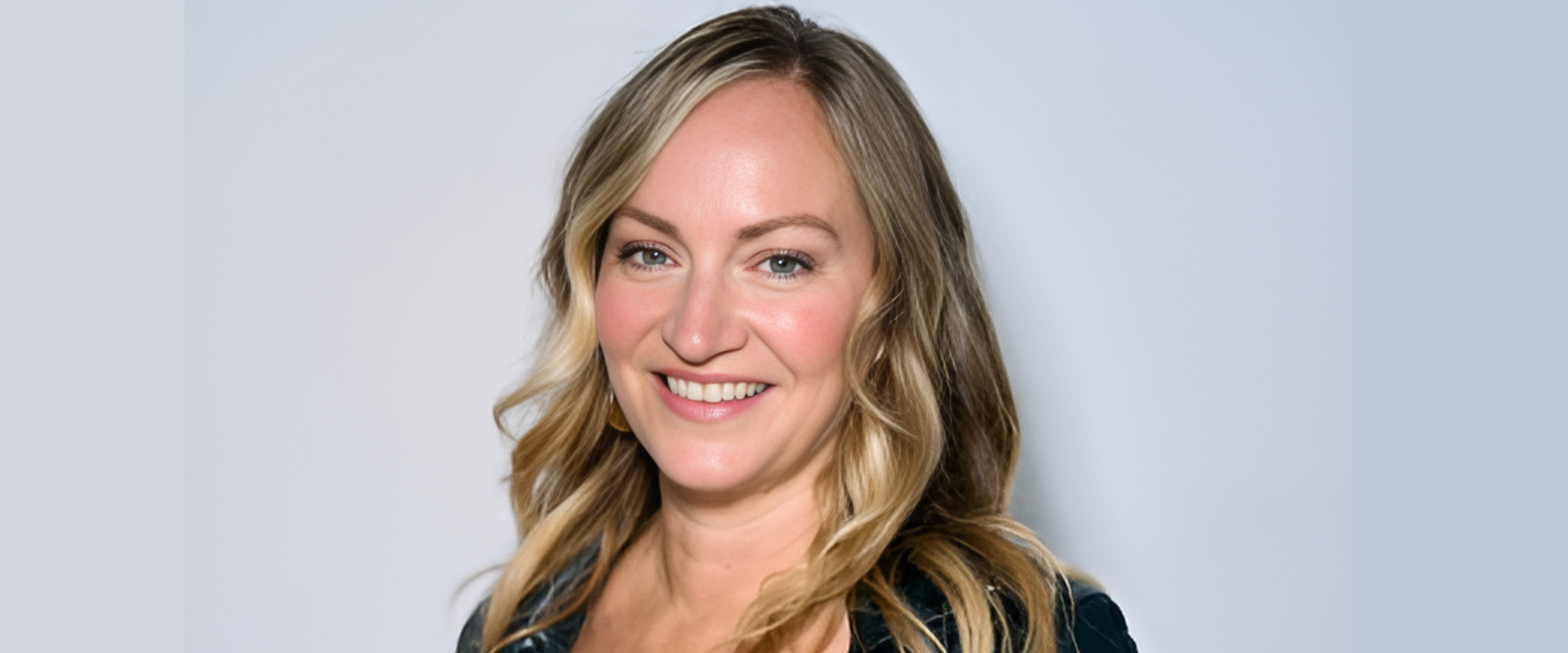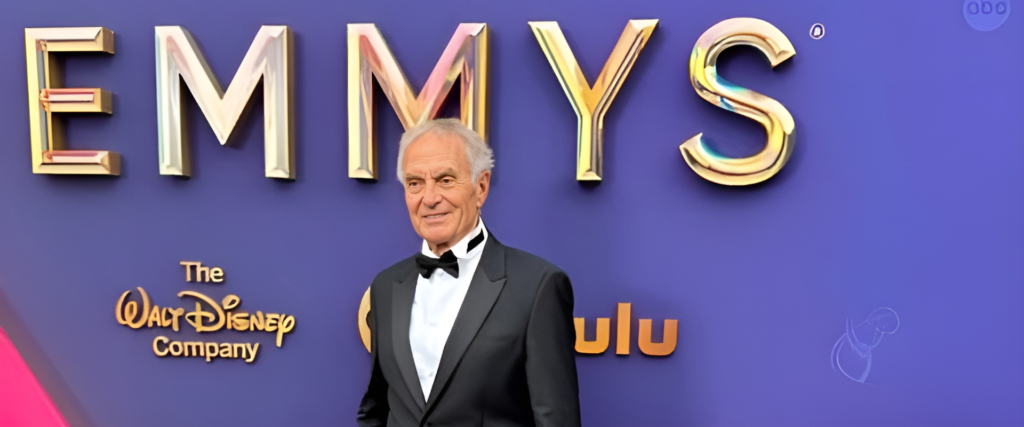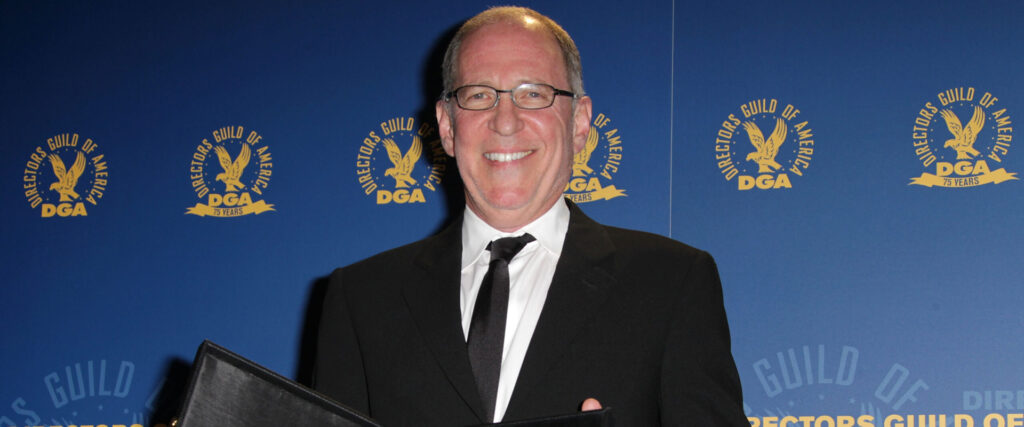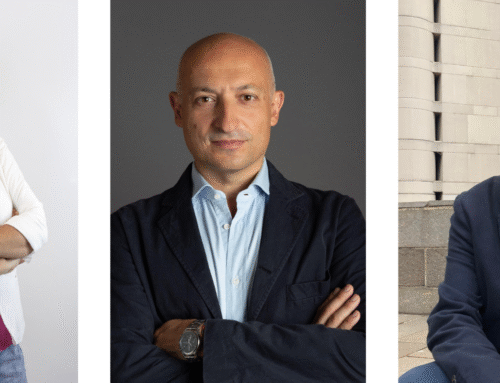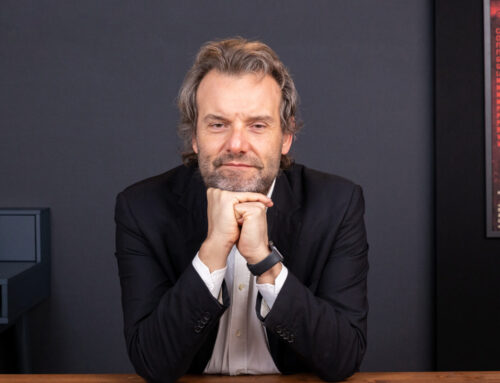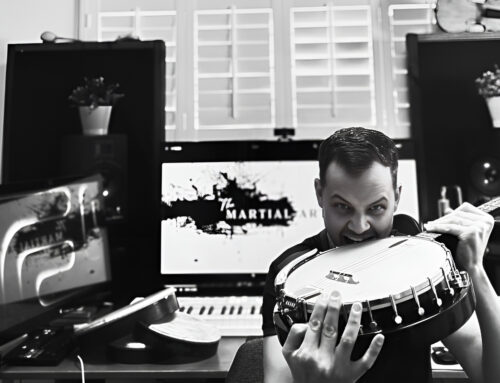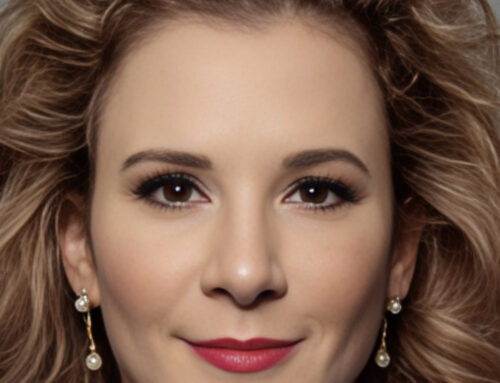Interview with Sarah Coursey
Senior Vice President International for Happy Accidents, Sarah Coursey has extensive experience in global sales, acquisitions, and development. Beyond her professional achievements, Coursey has a deep passion for Italy, where she lived for several years before relocating to Los Angeles. This interview is taking place while she is covering UK and European clients from Rome, the Eternal City, until MIA International Market and MIPCOM.
1 . You have expertise in both film and series, always as Head of Sales & Acquisitions. Could you share with our subscribers the difference in approaching the sales market for scripted versus unscripted content, based on your experience in foreign markets?
Scripted vs unscripted are two very different beasts, especially when you get into development and pre-sales. Unscripted is very much cast-led, regardless of the fact that you aren’t casting actors. They are still the talent and need to be carefully curated, and any idea that doesn’t have bankable personalities wrapped around it is bound to failure – if you can find those from the start you can make the format more bankable itself right from the start as they demonstrate its full potential
Scripted, on the other hand, is shifting from cast-heavy decision-making on the part of the commissioners, who take into increasing consideration the director of the project. The showrunner has always been a lynchpin in the US market for scripted, and continues to be so, but we are seeing channels and platforms advising to bring in a scripted series with a director attached. It’s all about the greater vision and style of a series, and the director brings that to the screen, which for buyers is more of a guarantee these days, especially in this risk-averse climate.
As far as tape sales are concerned, in the unscripted space, volume is still king … and the more recent, the better, and of course HD content will get the best rates. In the scripted space, as budgets are shrinking, windowing is becoming crucial to get content into a higher license fee range. We are finding that continuing series that have at least 3 seasons mapped out, if not available already, are more attractive to buyers, so from both an acquisitions and development perspective, we are leaning into this trend.
2. In your current role at Happy Accidents, you mentioned that the company, aside from their series focus, is also producing films, particularly in the categories of Christmas, Mystery, Rom-Com, and Thriller. With a growing slate of 17 films, how do you approach securing output deals or selling tranches to channels, and what do you see as the key to successfully expanding your film and series offerings in the international market?
We have the luxury of working with the very best of the best in the TV Movie business, from co-productions with Candace Cameron-Bure’s prod co Candy Rock, and of course films starring Candace herself and famous TV Movie faces such as Alison Sweeney and Cheryl Ladd, as well as faces from well-known television series such as Aaron Ashmore. Cast helps a lot when selling TV movies.
Our CEO, Eric Jarboe, is well known in the industry for putting out excellent films in the genres of Christmas and Holiday, Mystery and Romcom – in fact he has produced nearly 140 in his career. Happy Accidents may be a new name in the TV Movie game, but the know-how from our team is huge. That is our key to expanding our offerings in the international market.
3. As Head of Formats Sales and Acquisitions at Distraction and later at Zodiak Rights, could you explain what types of alternative formats were selling well in Europe generally and in Italy during that era (in that moment)?
That’s a great question. Quizzes were very hot, and one of the most interesting deals I did was selling L’Imbroglione, the Enrico Papi format, to the BBC. At Zodiak, I was part of the greenlight team that brought the paper format Killer Karaoke to the pilot stage, a great move as the show was sold in dozens of territories around the world. (UK title: Sing if you Can, airing on ITV).
4. You then consulted for Italian production companies, managing their domestic and international sales and acquisitions, and co-created the format Love at First Bite. What is a cooking format that you love, and which is the cooking or cuisine-based format that you haven’t seen produced yet and would like to create?
I would have to say that the psychology behind food is what most intrigued me about Love at First Bite, and I would like to see more cooking shows that dive into this important aspect of eating, cooking and sharing food with people, not just in dating situations, but in families. I won’t give anything away here, but we’re in discussions on redeveloping the format for the North American audience AND I have a few irons in the fire of other cooking shows at different stages of development
5. How do you approach various international markets, especially Italy? What are the key differences for sellers when navigating markets in different countries? Speaking the same language as the sales /acquisition international professional in front of you, how does that help you?
We attend many international markets, from MIPTV to MIPCOM, Content London to Content LA and Content Americas, as well as Series Mania, BANFF and MIA Market. We’ve got our sights on new markets too, like the inaugural MIPLondon, taking the place of MIPTV.
Our active and constant presence in the international conference scene helps significantly in expanding our presence and relationships, boost sales and reinforce the brand. In Italy, I have long standing relationships with all of the buyers, and speaking the same language and understanding the culture intimately, as I have lived and worked in several European countries (Italy, Germany, UK), helps a great deal when approaching clients.
Share:
Senior Vice President International for Happy Accidents, Sarah Coursey has extensive experience in global sales, acquisitions, and development. Beyond her professional achievements, Coursey has a deep passion for Italy, where she lived for several years before relocating to Los Angeles. This interview is taking place while she is covering UK and European clients from Rome, the Eternal City, until MIA International Market and MIPCOM.
1 . You have expertise in both film and series, always as Head of Sales & Acquisitions. Could you share with our subscribers the difference in approaching the sales market for scripted versus unscripted content, based on your experience in foreign markets?
Scripted vs unscripted are two very different beasts, especially when you get into development and pre-sales. Unscripted is very much cast-led, regardless of the fact that you aren’t casting actors. They are still the talent and need to be carefully curated, and any idea that doesn’t have bankable personalities wrapped around it is bound to failure – if you can find those from the start you can make the format more bankable itself right from the start as they demonstrate its full potential
Scripted, on the other hand, is shifting from cast-heavy decision-making on the part of the commissioners, who take into increasing consideration the director of the project. The showrunner has always been a lynchpin in the US market for scripted, and continues to be so, but we are seeing channels and platforms advising to bring in a scripted series with a director attached. It’s all about the greater vision and style of a series, and the director brings that to the screen, which for buyers is more of a guarantee these days, especially in this risk-averse climate.
As far as tape sales are concerned, in the unscripted space, volume is still king … and the more recent, the better, and of course HD content will get the best rates. In the scripted space, as budgets are shrinking, windowing is becoming crucial to get content into a higher license fee range. We are finding that continuing series that have at least 3 seasons mapped out, if not available already, are more attractive to buyers, so from both an acquisitions and development perspective, we are leaning into this trend.
2. In your current role at Happy Accidents, you mentioned that the company, aside from their series focus, is also producing films, particularly in the categories of Christmas, Mystery, Rom-Com, and Thriller. With a growing slate of 17 films, how do you approach securing output deals or selling tranches to channels, and what do you see as the key to successfully expanding your film and series offerings in the international market?
We have the luxury of working with the very best of the best in the TV Movie business, from co-productions with Candace Cameron-Bure’s prod co Candy Rock, and of course films starring Candace herself and famous TV Movie faces such as Alison Sweeney and Cheryl Ladd, as well as faces from well-known television series such as Aaron Ashmore. Cast helps a lot when selling TV movies.
Our CEO, Eric Jarboe, is well known in the industry for putting out excellent films in the genres of Christmas and Holiday, Mystery and Romcom – in fact he has produced nearly 140 in his career. Happy Accidents may be a new name in the TV Movie game, but the know-how from our team is huge. That is our key to expanding our offerings in the international market.
3. As Head of Formats Sales and Acquisitions at Distraction and later at Zodiak Rights, could you explain what types of alternative formats were selling well in Europe generally and in Italy during that era (in that moment)?
That’s a great question. Quizzes were very hot, and one of the most interesting deals I did was selling L’Imbroglione, the Enrico Papi format, to the BBC. At Zodiak, I was part of the greenlight team that brought the paper format Killer Karaoke to the pilot stage, a great move as the show was sold in dozens of territories around the world. (UK title: Sing if you Can, airing on ITV).
4. You then consulted for Italian production companies, managing their domestic and international sales and acquisitions, and co-created the format Love at First Bite. What is a cooking format that you love, and which is the cooking or cuisine-based format that you haven’t seen produced yet and would like to create?
I would have to say that the psychology behind food is what most intrigued me about Love at First Bite, and I would like to see more cooking shows that dive into this important aspect of eating, cooking and sharing food with people, not just in dating situations, but in families. I won’t give anything away here, but we’re in discussions on redeveloping the format for the North American audience AND I have a few irons in the fire of other cooking shows at different stages of development
5. How do you approach various international markets, especially Italy? What are the key differences for sellers when navigating markets in different countries? Speaking the same language as the sales /acquisition international professional in front of you, how does that help you?
We attend many international markets, from MIPTV to MIPCOM, Content London to Content LA and Content Americas, as well as Series Mania, BANFF and MIA Market. We’ve got our sights on new markets too, like the inaugural MIPLondon, taking the place of MIPTV.
Our active and constant presence in the international conference scene helps significantly in expanding our presence and relationships, boost sales and reinforce the brand. In Italy, I have long standing relationships with all of the buyers, and speaking the same language and understanding the culture intimately, as I have lived and worked in several European countries (Italy, Germany, UK), helps a great deal when approaching clients.

